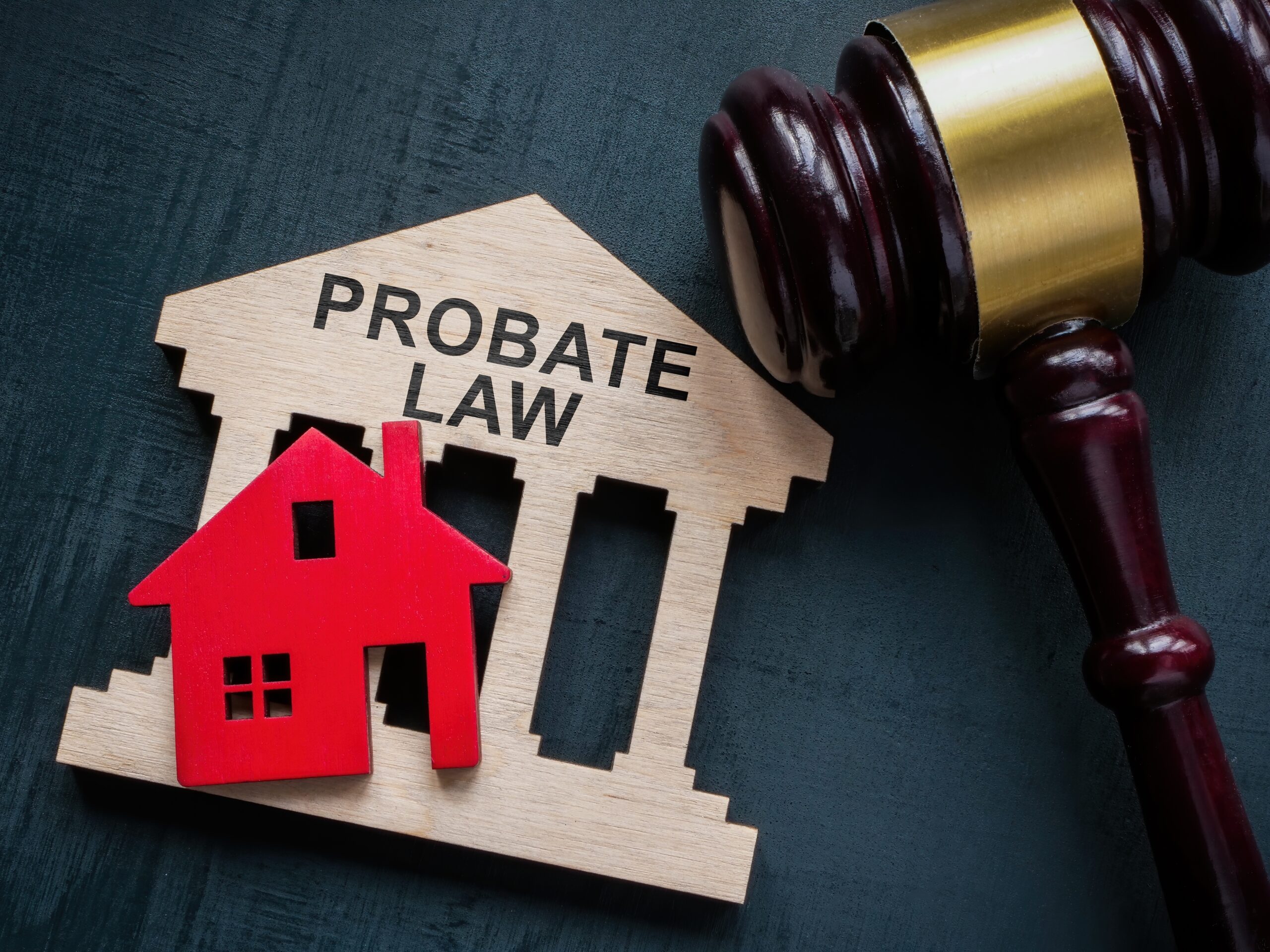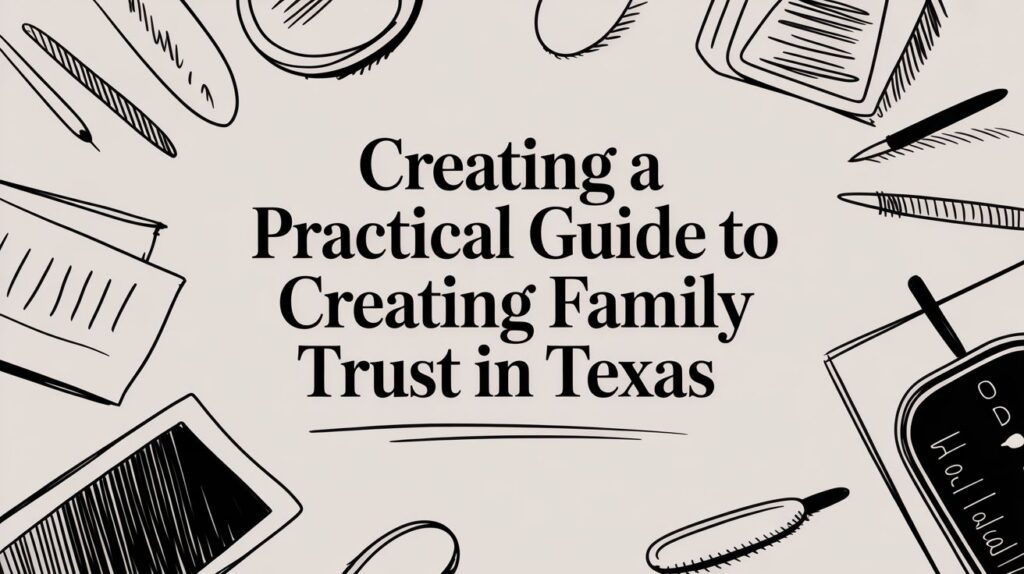If you’re wondering when is probate not required in Texas, you’re definitely not alone. Many grieving families find navigating probate court overwhelming—especially while mourning. Fortunately, Texas law provides several built-in legal shortcuts that allow assets to transfer without triggering a fullprobate process. These alternatives can spare families both emotional distress and financial strain during already challenging times. Understanding these pathways can make all the difference in ensuring a smoother transition of property.
This article breaks down real-life scenarios where probate isn’t necessary in Texas. Through everyday examples, simplified explanations, and actionable tips, you’ll gain a clearer sense of whether probate applies—and what steps to take if it does. Whether planning ahead or managing a recent loss, this guidance can streamline your legal path forward. Knowing when to act—and when you don’t have to—can save valuable time and resources.

Why Probate Exists—And Why Families Prefer to Avoid It
Probate is the court-supervised process for distributing a deceased person’s estate. The court verifies a will, settles outstanding debts, and authorizes asset transfers to beneficiaries. While that sounds procedural, the reality is often costly, time-consuming, and emotionally draining.
Families frequently ask when is probate not required in Texas for good reason: avoiding court saves time, reduces legal headaches, and lowers stress during a difficult period.
Thankfully, Texas laws are relatively probate-friendly. Several exceptions exist, but understanding the rules behind them is crucial to taking full advantage.
Real-Life Story: Emma’s Inheritance, the Easy Way
Emma, a Houston resident, experienced a smooth transition after her mother passed. Her mother had named her as the payable-on-death (POD) beneficiary for a checking account, and filed a Transfer-on-Death (TOD) deed for her home—both decisions made before her death.
Instead of appearing in court, Emma presented her mother’s death certificate at the bank and submitted a short affidavit to the county clerk’s office. That ended the process—no court hearings, attorney fees, or frustrating delays.
Her story shows that when is probate not required in Texas is more than a legal abstraction—it’s a real possibility through smart planning.
Non-Probate Assets: What Transfers Automatically?
Texas recognizes specific asset types as non-probate, meaning they bypass court proceedings altogether. These assets offer the most efficient route for heirs to receive their inheritance.
1. Payable-on-Death (POD) and Transfer-on-Death (TOD) Accounts
Bank, investment, and retirement accounts allow you to name beneficiaries through POD or TOD designations. Once the account holder passes away, the beneficiary simply submits a death certificate and proof of identity to collect the funds—no court required.
2. Life Insurance Policies
Life insurance proceeds also transfer directly to named beneficiaries. If one is listed, the insurance company disburses the payout without court involvement. However, if no beneficiary exists or the estate is named instead, probate becomes necessary.

3. Joint Tenancy with Right of Survivorship
When property—such as real estate, bank accounts, or vehicles—is co-owned with survivorship rights, the surviving owner automatically takes full ownership. No probate steps are needed to complete the transition.
4. Trust-Based Assets
Assets transferred into a living trust during someone’s lifetime avoid probate entirely. A trustee distributes the property privately according to the trust’s terms. Trusts are especially useful for larger or more complicated estates.
If you’re researching when is probate not required in Texas, these four asset types are the best place to start.
The Transfer-on-Death Deed: Avoiding Probate on Real Estate
Probate often becomes necessary because of real estate—but Texas law provides a solution: the Transfer-on-Death (TOD) deed. This approach can significantly simplify estate planning and asset transfer for families looking to avoid drawn-out court procedures.
Implemented in 2015, this tool lets property owners name beneficiaries who automatically receive title upon the owner’s death—no judge, no will validation, and no hearings. It has since become a cornerstone strategy for Texans hoping to streamline post-death real estate transitions.
How It Works:
- The property owner files a TOD deed with the county clerk. This must be done while the owner is still alive and competent.
- After death, the beneficiary files an Affidavit of Death. This legal form affirms the transfer and documents the original owner’s passing.
- Ownership passes instantly without probate. The title updates directly in the county records, without requiring executor intervention.
This process cuts delays and helps prevent future disputes. It also keeps property transfers private and avoids the extra costs often tied to traditional probate administration.
For families preserving real estate legacies, TOD deeds offer unmatched efficiency. They are especially valuable for individuals seeking to minimize court involvement and preserve family harmony during emotionally trying times.
Juan’s Case: A Real Estate Transfer Without Probate
Juan, a retired schoolteacher in Laredo, wanted to pass his home to his grandson, Marco. Acting on legal advice, he filed a TOD deed naming Marco as the beneficiary.
When Juan passed away, Marco filed the Affidavit of Death and took legal ownership—without stepping foot in court.
His story provides a perfect answer to when is probate not required in Texas—when a TOD deed is used properly.
Small Estate Affidavit: A Shortcut for Modest Estates
What if no TOD or POD designations exist? Texas offers another solution: the Small Estate Affidavit (SEA). This simplified procedure can sidestep probate if the estate meets these criteria:
- Estate value doesn’t exceed $75,000 (excluding the homestead).
- No valid will is present.
- The homestead is the only real property.
- All heirs agree on distribution and are clearly identified.
Once a judge approves the SEA, heirs can access funds or property without appointing an administrator or attending court hearings.
That means when is probate not required in Texas also includes situations where the SEA applies.
Affidavit of Heirship: Another Workaround for Real Property
For estates involving additional real estate or exceeding the SEA limit, Texas allows the Affidavit of Heirship—a document that outlines familial relationships and inheritance agreements.
This option works best when:
- No valid will exists.
- Real estate is part of the estate.
- All heirs agree on who inherits.
- Court involvement is best avoided.

Although not as strong as formal probate, many title companies accept this document when heirs wish to sell inherited property.
The McAllister Family: Using Heirship to Resolve Inheritance
After their father’s passing, the McAllister siblings inherited several acres of rural land. No will had been written, but everyone agreed on the property’s division. Instead of filing for probate, they completed an Affidavit of Heirship, filed it, and successfully sold the land together—saving both money and time. Their ability to act quickly and in agreement prevented the estate from becoming entangled in a lengthy court process.
Their experience highlights how heirship documents can simplify the process for cooperative families seeking alternatives. It’s a prime example of how clear communication and shared goals can turn a complex legal matter into a manageable solution.
When Probate Becomes Unavoidable in Texas
Some estates simply don’t qualify for these shortcuts. Probate becomes necessary under conditions like:
- Property lacks TOD deeds or beneficiaries.
- A valid will needs execution through the court.
- Heirs disagree or creditors present claims.
- Outstanding debts must be resolved formally.
- The estate holds business interests or faces lawsuits.
Even in these cases, Texas law includes limited probate procedures to ease the burden.
The Muniment of Title: A Texas Probate Shortcut
When a valid will exists and the estate carries no significant debt (besides mortgage obligations), heirs may use the Muniment of Title—a streamlined probate option.
This procedure lets a judge validate the will and approve property transfers without appointing an executor or opening full probate administration.
Requirements:
- A valid, uncontested will.
- No debts outside mortgages.
- All assets clearly accounted for.
The Muniment of Title provides a faster, more cost-effective way to settle estates without navigating traditional probate channels.
Estate Planning: The Best Way to Skip Probate
Ultimately, the answer to when is probate not required in Texas often depends on proactive planning. Families that prepare in advance ensure smoother transitions and fewer legal complications.
Tools That Help Bypass Probate:
- TOD deeds for homes or land.
- POD designations for financial accounts.
- Living trusts for managing large estates.
- Keeping beneficiaries up to date.
- Joint ownership with survivorship rights.

When these tools are in place, court involvement becomes minimal—and estate transfers happen quickly and quietly.
Final Thoughts: When Is Probate Not Required in Texas?
So—when is probate not required in Texas? The answer lies in how the estate is structured. Probate often becomes unnecessary when assets pass automatically via PODs, TODs, living trusts, or survivorship arrangements. Simplified options like Small Estate Affidavits and Affidavits of Heirship also offer powerful probate alternatives. These methods work best when the decedent’s affairs were organized and up-to-date.
Still, not every estate qualifies. Disputes, debts, or missing documents may force probate—but Texas offers shortcuts like the Muniment of Title even then. Knowing these alternatives helps families avoid unnecessary legal entanglements and delays.
Start planning today. With the right steps now, you’ll protect your loved ones from legal stress tomorrow—and that’s the best gift of all. Early preparation can spare them from painful and costly decisions when emotions run high.








